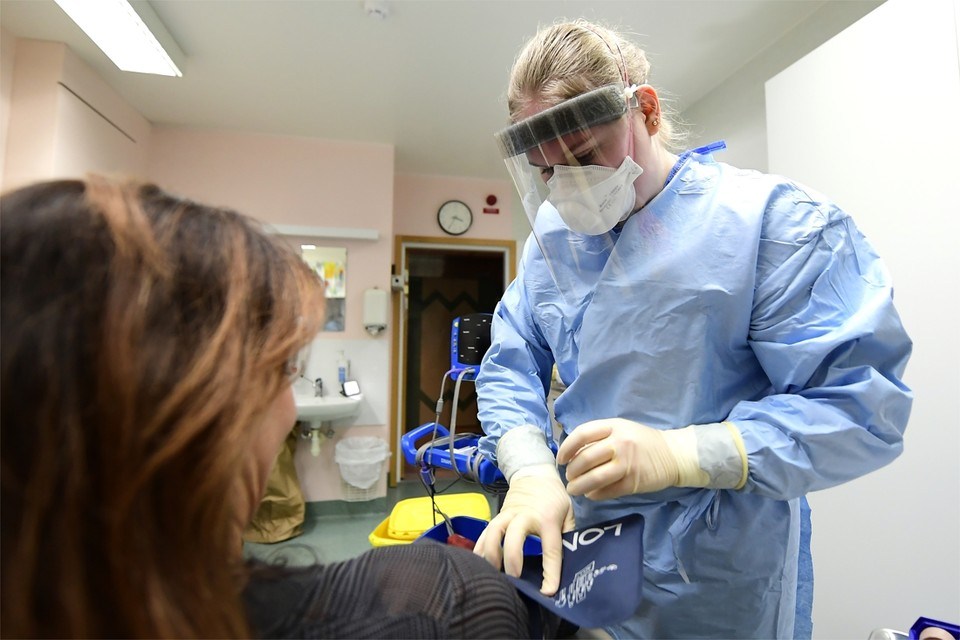With Belgium's new Covid-19 testing strategy, only people who are showing symptoms of an infection, as well as health care staff, can still get tested.
Even though the people who are eligible for a test have changed, the case definition of the virus has remained the same, according to virologist Steven Van Gucht, an official with national health institute Sciensano.
"People who develop symptoms reminiscent of Covid-19 will still be tested, and it still concerns the same wide range of symptoms," he said.
The only exception that will be made is for healthcare staff, who can also get a test if they do not show symptoms. "They can still be tested on day 5 after exposure. In case of a negative test result, their quarantine can end after seven days," he said.
Related News
- 1 in 10 will only develop Covid-19 symptoms after quarantine
- New testing strategy will underestimate Belgium's rising infections
- Explaining Belgium's new Covid-19 testing strategy
The occurrence of sudden cough, loss of smell and taste, and difficult or painful breathing are all symptoms that warrant a test. "General flu-like symptoms, a flu-like feeling or signs of a cold can also be a reason to get tested," Van Gucht said.
Additionally, the combination of two of the following symptoms is a reason to be tested: fever, muscle pain, fatigue, runny nose, sore throat, headache or diarrhoea.
However, the symptoms are very diverse and can therefore also point to numerous other infections.
"Regardless, it is very important that you immediately stay at home in the event of these symptoms, and contact your general practitioner, who can then prescribe a test," he added.
To ease mounting pressure on Belgium's testing capacity, tests of asymptomatic patients that used to be carried out preventively will no longer be done.
"This concerns tests out of curiosity, out of precaution or after having a low-risk contact. We are not going to do these kinds of tests anymore," Van Gucht said.
Tests at the request of the employer also will not be a priority as long as the testing capacity is under pressure, he said.
"If people strictly follow the quarantine rules, this adaptation of the strategy means little extra risk," Van Gucht said.
"However, we would like to stress once again that strictly respecting the quarantine is essential to keep an epidemic under control. A test has never been an alternative for that. A test only has value if it is followed by the appropriate action."
Maïthé Chini
The Brussels Times

